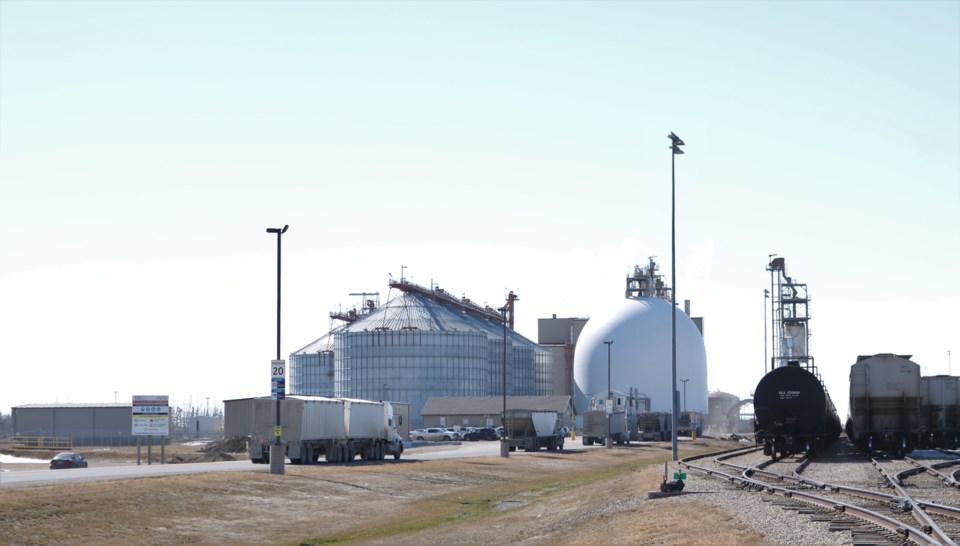YORKTON - The Yorkton economy and the canola sector both received a major shot in the arm Tuesday.
The boost came when Louis Dreyfus Company (LDC), announced it will expand its canola crushing facility at Yorkton.
"This investment supports the group's strategic growth plans by reinforcing core merchandizing activities, in this case with additional capacity to originate and process Canadian canola seeds to provide nourishment for people and livestock," LDC Chief Executive Officer Michael Gelchie said in a provincial government release. "It also positions LDC as a strategic feedstock provider to renewable energy producers and accelerates our contribution to a global energy transition that we are excited to be a part of."
Yorkton Mayor Mitch Hippsley said the announcement is simply huge for the city.
“We’re ecstatic,” he said, adding the City “had a hint” something was coming when LDC purchased some City-owned land adjacent to its current location – land Hippsley noted was not that currently occupied by the Yellowhead stock car track.
Now that the announcement has been made Hippsley said the city will get a short-term construction boost and then long-term jobs when completed.
“It will add all kinds of new lifeblood to the city,” he said, adding construction will be a two-three-year process and that means construction crews spending dollars while in Yorkton.
Once complete Hippsley said it has been suggested some 80 new jobs will be created.
The expansion also sends something of a message in the sense LDC is a major international entity and they see value in expanding here.
“It’s a vote of confidence for the city moving into the future,” offered Hippsley. “They’re in it for the long haul.”
It helps that Yorkton is serviced by multiple highways for collecting canola, a good water supply essential to processing, and two rail lines that are a key to shipping oil to markers worldwide, said Hippsley.
The facility's new capacity will be over two million metric tons, which is more than double its current capacity.
That’s good news for the canola sector offered Tracy Broughton, Executive Director with SaskCanola.
“It’s a really good news story,” she told Yorkton This Week, noting the LDC expansion shows confidence both in the region’s capacity to grow canola, and a market for the oil once processed.
“It really shows the stability of canola production in Canada,” she continued, adding “. . . it shows the growth of production over the last decade.”
As for sales, Broughton said while the market for oil for food is rather stable. The biofuel sector is an area of growth.
“There’s lot of opportunity for canola expanding in the biofuel market,” she said.
The province sees it as good for the economy too.
"This major investment by LDC is good news for Saskatchewan canola growers and good news for workers and the economy in Yorkton and right across the province," Trade and Export Development Minister Jeremy Harrison said in the provincial government release. "This expansion brings Saskatchewan even closer to several of the 2030 Growth Plan goals, including the ambitious goal of crushing 75 per cent of the canola produced in the province. This investment strengthens the province's position as a global leader in agriculture value-added processing and will further increase Saskatchewan's international exports."
In addition to helping with the canola crushing goal, the expansion puts the province closer to meeting several other key goals outlined in Saskatchewan's Growth Plan, including:
* Grow private capital investment in Saskatchewan to $16 billion annually;
* Increase the value of exports by 50 per cent;
* Grow Saskatchewan's agri-food exports to $20 billion; and
* Increase agriculture value-added revenue to $10 billion.
Canola oil and canola seed were among Saskatchewan's top three agri-food exports in 2022, with a value of $3.5 billion and $2.7 billion, respectively.
An official sod turning will take place in May, and construction of the additional canola crushing line is expected to begin later this year.
LDC initially opened the Yorkton facility in 2009 and currently employs approximately 120 people.






